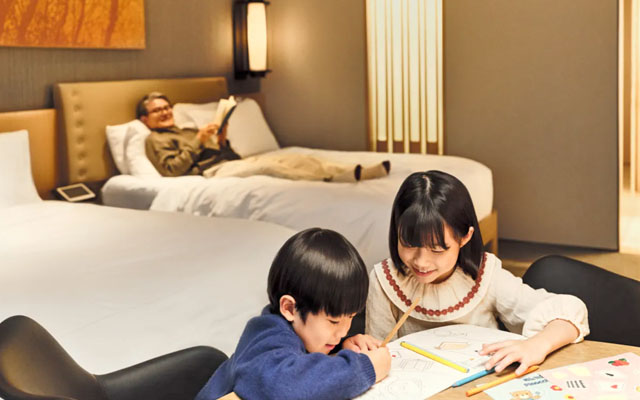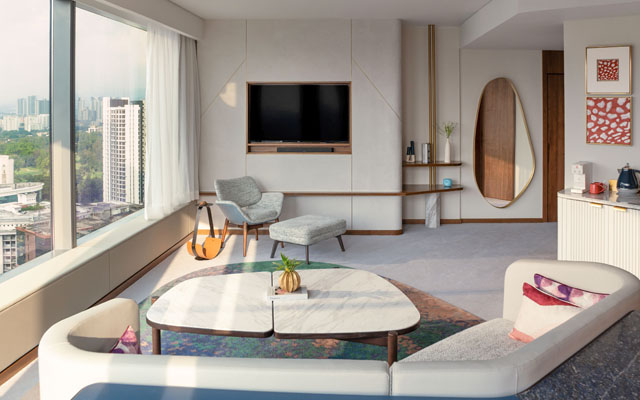Skip-generation holidays are gaining momentum across Asia-Pacific, according to Hilton’s 2026 Trends Report. Grandparents and grandchildren are increasingly travelling together – often without parents.
Families are also redefining travel with a stronger focus on time together and shared experiences that strengthen intergenerational bonds.

Six in 10 respondents (60%) across the region say they have taken or plan to take a skip-generation holiday. The trend is most pronounced in China (86%) and India (79%), where it has moved from novelty to mainstream. In China, more than three-quarters (77%) expect to book at least one to two skip-generation holidays in 2026, suggesting such trips may soon rival traditional family vacations.
The desire to create lasting memories is the main motivation behind skip-generation travel. 58% of families across Asia-Pacific cite this as their reason for travelling, rising to 67% in India, 64% in Australia, and 63% in New Zealand. In Japan, nearly half of families (47%) and 50% of grandparents say the appeal lies in experiencing new things together.
Grandparents are also taking a more active role in shaping family travel decisions. In China, nearly half (46%) are initiating skip-generation trips, underscoring the growing influence of older generations and the importance of accommodation that meets all age needs.
Nearly nine in 10 (89%) respondents believe travelling with family supports grandparents’ health and well-being. For grandparents, time with grandchildren is the most valued part of travel (50%). Accessible facilities and wellness amenities are increasingly seen as essential to ensure comfort and inclusion for all generations.
While Hilton’s global research found that rest and recharge (56%) remain the main reasons to travel for leisure in 2026, in Asia-Pacific, priorities differ. 61% of travellers say quality time with family matters more than downtime, with the sentiment strongest in India (72%) and China (62%).
Families are choosing experiences that encourage shared discovery. Culinary exploration (69%) and visits to historical and cultural landmarks (63%) are the top activities, particularly in Singapore, where more than eight in 10 families (81%) cite food-related exploration as their preferred activity.
Multi-generational travel continues to expand alongside skip-generation holidays. Nearly half (48%) of families in Asia-Pacific take trips involving three or more generations at least once a year, led by China (78%) and India (65%). Strengthening family bonds (60%) and creating lasting memories (57%) are the key motivations.
Accommodation remains central to enabling inclusive stays. Nearly half of families (48%) prefer interconnecting rooms or family suites, while 42% prioritise senior-friendly facilities such as mobility aids, medical support, and accessible dining. Relaxation and wellness amenities (42%) also rank highly, highlighting the growing need for options that cater to every age group.
These findings form part of Hilton’s 2026 Trends Report, The Whycation: Travel’s New Starting Point, which examines how intergenerational and purpose-driven travel are shaping future travel patterns.
The report also identifies three additional trends: Hushpitality reflects travellers’ desire for peace and quiet in destinations that allow them to disconnect from distractions. Home Comforts are the New ‘Carry On’ shows that travellers increasingly seek familiarity and comfort while away, incorporating everyday routines into their trips. Inheritourism highlights how children continue to travel with parents as they grow up, maintaining preferences and habits shaped by family travel traditions.
Ben George, senior vice president and commercial director, Asia Pacific, Hilton, said: “The rise of skip-generation travel highlights a fascinating shift in how families are connecting. By designing experiences that anticipate the needs of multi-generational families, we aim to make every stay as seamless and memorable as possible, helping guests create meaningful moments together.”
View the full report here.











